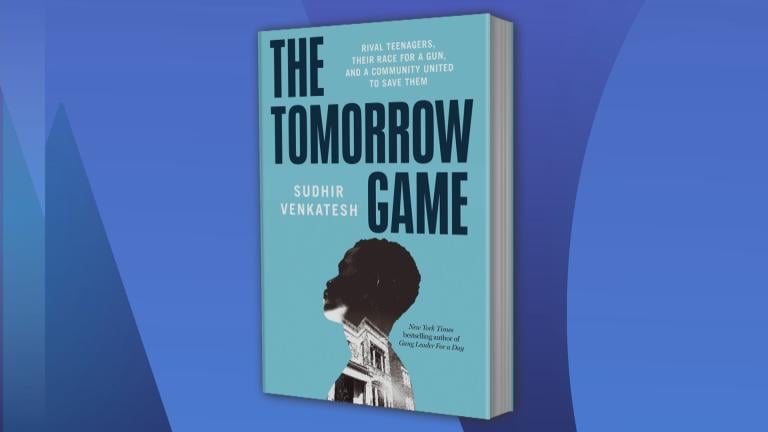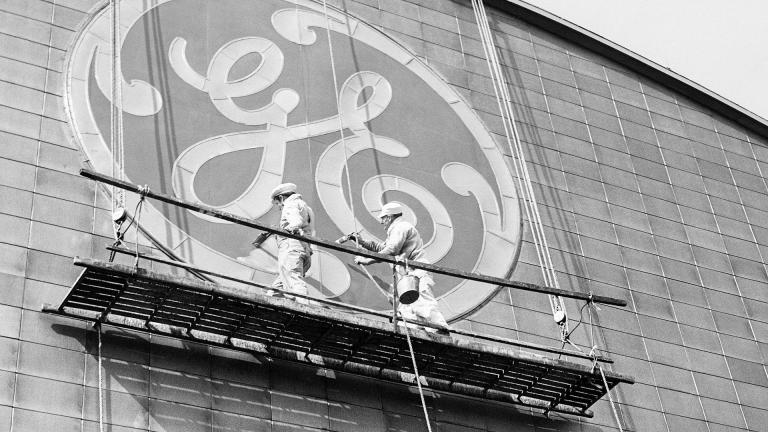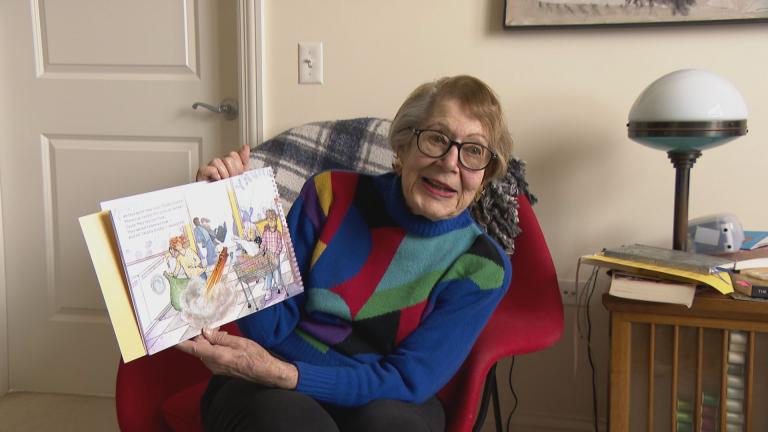The November 2016 election of Donald Trump and the reaction of his supporters and opponents over the past year exemplify the political and social polarization in the United States.
Polling and reporting show Americans sharply divided about the nation’s future. One source of angst is the country’s perceived decline—an “unraveling” of its identity. That identity is what author Robert P. Jones explores in his book “The End of White Christian America.”
Jones is the CEO of the Public Religion Research Institute and was in town for a Chicago Humanities Festival event. He joins Chicago Tonight in conversation.
Below, an excerpt from the book.
![]()

AN OBITUARY FOR WHITE CHRISTIAN AMERICA
Excerpted from THE END OF WHITE CHRISTIAN AMERICA by Robert P. Jones
After a long life spanning nearly two hundred and forty years, White Christian America—a prominent cultural force in the nation’s history—has died. WCA first began to exhibit troubling symptoms in the 1960s when white mainline Protestant denominations began to shrink, but showed signs of rallying with the rise of the Chris‐ tian Right in the 1980s. Following the 2004 presidential election, however, it became clear that WCA’s powers were failing. Although examiners have not been able to pinpoint the exact time of death, the best evidence suggests that WCA finally succumbed in the latter part of the first decade of the twenty‐first century. The cause of death was determined to be a combination of environ‐ mental and internal factors— complications stemming from major demographic changes in the country, along with religious disaffiliation as many of its younger members began to doubt WCA’s continued relevance in a shifting cultural environment.
Among WCA’s many notable achievements was its service to the nation as a cultural touchstone during most of its life. It provided a shared aesthetic, a historical framework, and a moral vocabulary. WCA’s vibrancy was historically one of the most prominent features of American public life. While the common cultural ground it offered did not prevent vehement— or even bloody—conflicts from erupting, the lingua franca of WCA gave them a coherent frame.
As the nation was being born, George Washington invoked WCA in his first inaugural address.1 And when it was being torn apart during the Civil War, WCA pro‐ vided biblical themes and principles that called the nation back to its highest ideals. Without WCA, neither Abraham Lincoln’s second inaugural address nor Martin Luther King, Jr.’s, “Letter from Birmingham Jail” could have been written, let alone understood. Virtually every American president has drawn from WCA’s well, particularly during moments of strife.
During its long life, WCA also produced a dizzying array of institutions, from churches to hospitals, social service organizations, and civic organizations such as the Boy Scouts, Girl Scouts, and the YMCA. Beyond these direct functions, WCA also helped incubate and promote the missions of countless independent nongovernmental organizations that met in its facilities and were staffed with its members. Widespread participation in WCA’s lay leadership positions served as an important source of social capital for the nation, instilling in participants skills they carried, not only to other civic organizations, but to democratic governance itself.
But WCA has not been without its critics and controversies. Its reputation was especially marred by its general accommodation to and participation in the institution of slavery up until the Civil War. In the late nineteenth and twentieth centuries, WCA’s apathy toward—and in some quarters even staunch defense of— segregation in the American South did little to overturn these negative associations. Its credibility was also damaged when it became mired in partisan politics in the closing decades of the twentieth century. Late in its life, WCA also struggled to adequately address issues such as lesbian, gay, bisexual, and transgender (LGBT) rights, which were of particular importance to its younger members, as well as to younger Americans overall.
WCA is survived by two principal branches of descendants: a mainline Protestant family residing primarily in the Northeast and upper Midwest and an evangelical Protestant family living mostly in the South. Plans for a public memorial service have not been announced.
Related stories:
 Hillary Clinton Visits Chicago Amid Mueller Indictments
Hillary Clinton Visits Chicago Amid Mueller Indictments
Oct. 30: At a book signing in Winnetka, the former Democratic presidential candidate was asked for her response to Robert Mueller’s investigation. “I have a great chapter about Russia in here,” she said, holding up her book.
 ‘Shattered’ the Inside Story of What Sunk Hillary Clinton’s Campaign
‘Shattered’ the Inside Story of What Sunk Hillary Clinton’s Campaign
June 15: It was arguably the biggest political upset in American history. Political journalist Jonathan Allen joins us with his insight and to discuss the book he co-authored, “Shattered: Inside Hillary Clinton’s Doomed Campaign.”
 Tips for Getting Along with Family, Friends Post-Election
Tips for Getting Along with Family, Friends Post-Election
Nov. 17, 2016: Worried that politics might spoil your Thanksgiving meal? Two local psychologists serve up recipes for a peaceful post-election family gathering.








